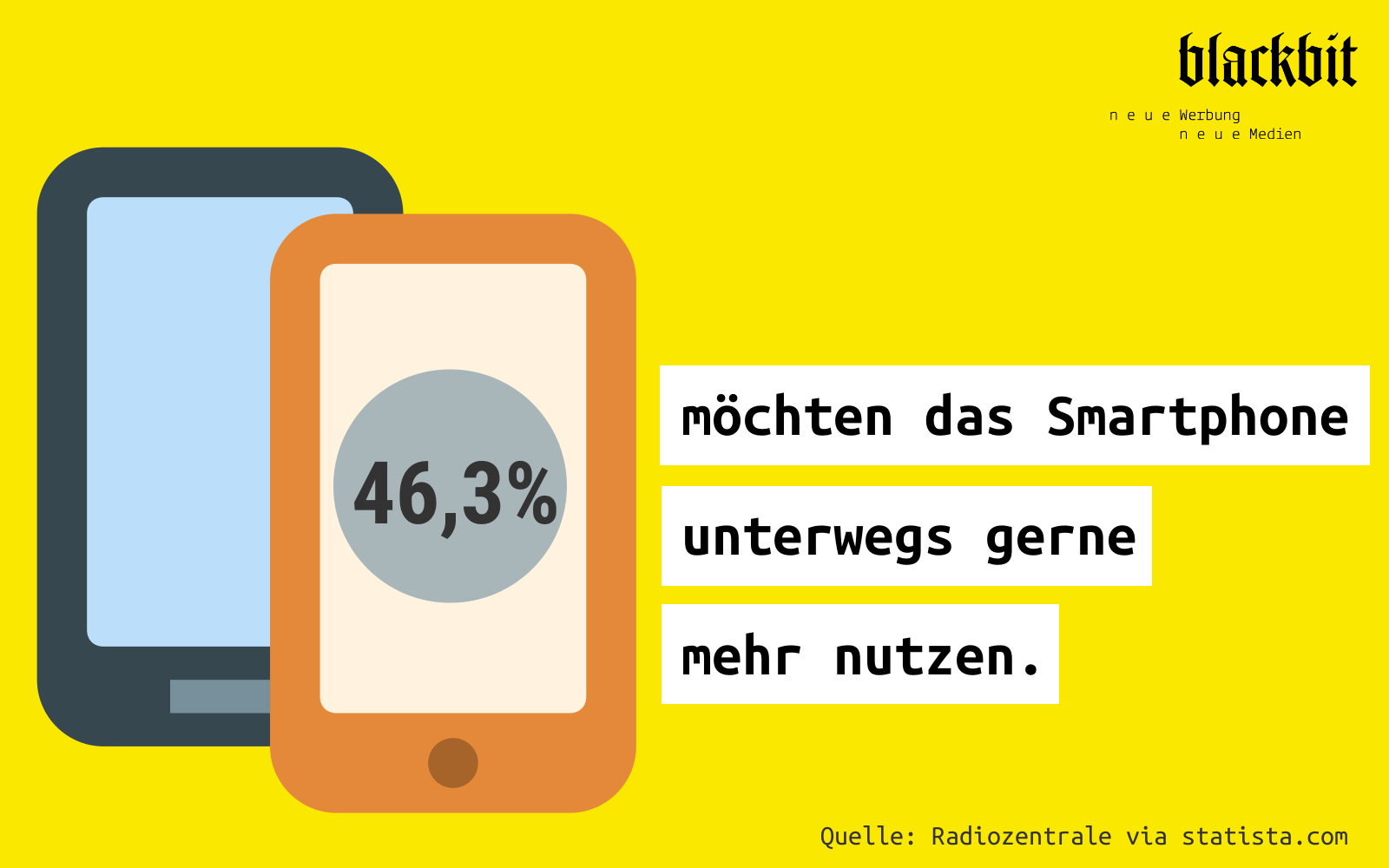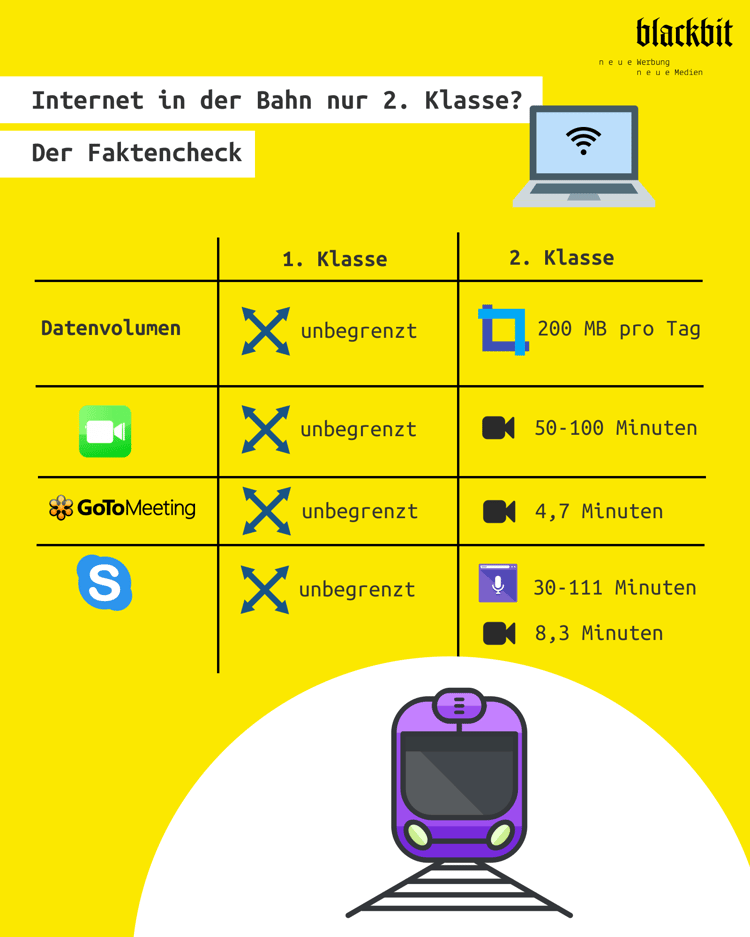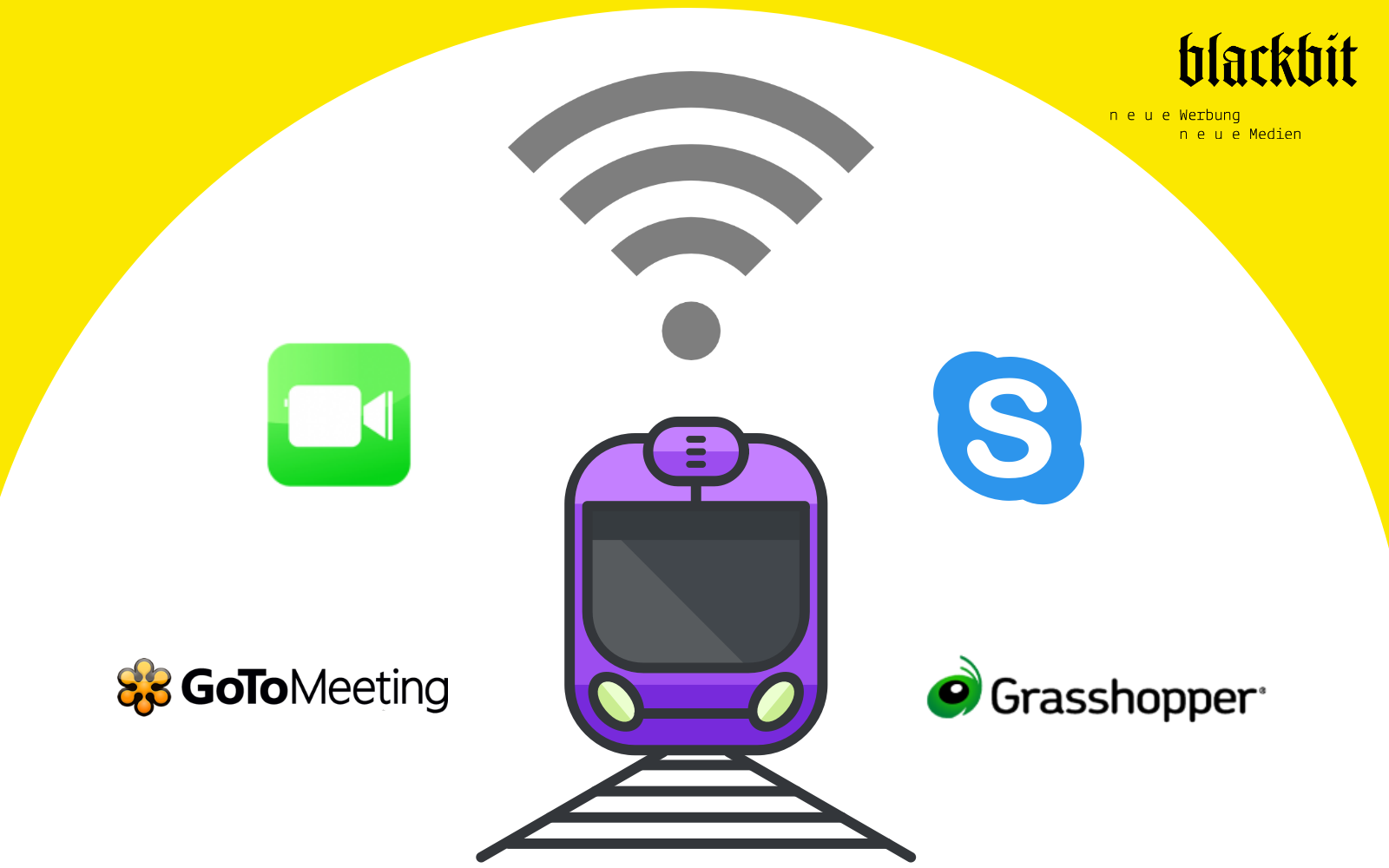Since January 1, 2017, free WLAN has been available to all passengers on Deutsche Bahn's ICE trains - in both 1st and 2nd class. By providing parallel access to all mobile networks, Deutsche Bahn ensures a strong, fast and stable network, which it says is the "best mobile WLAN system available on the market today". The transport operator is thus upgrading to meet the needs of its customers, because according to a survey by Radiozentrale, 46.3% of respondents would like to use their smartphone more often while on the move (source: statista.com). In recent years, the number of mobile Internet users has risen rapidly from just 20% in 2011 to 68% in 2016 (source: ZDF, ARD, via statista.com).

Mobile, flexible working on the ICE
 Free WLAN for all ICE travelers also means that in the future, travel time can be excellently used as working time - for example, to answer e-mails or attend meetings. While unlimited Internet use is possible in 1st class, in 2nd class each user has a data volume of 200 MB per day at their disposal before continuing to surf at lower speeds.
Free WLAN for all ICE travelers also means that in the future, travel time can be excellently used as working time - for example, to answer e-mails or attend meetings. While unlimited Internet use is possible in 1st class, in 2nd class each user has a data volume of 200 MB per day at their disposal before continuing to surf at lower speeds.
Using Skype on the move - the fact check
To be able to hold meetings across different locations or during a business trip, many companies rely on the free Skype messenger service, which is also available as a mobile app and also supports group calls. A Skype call without video in lowest quality consumes 1.8 MB per minute. This means that a call in the 2nd class of an ICE can last up to 111 minutes before the speed is throttled. In the quality recommended by Skype, users have about half an hour available for meetings with 6 MB per minute before the browsing speed is downgraded. Video calls are much heavier: The data volume of 200 MB is already exhausted after 8.3 minutes, video calls in HD after less than three minutes. Facetime offers an alternative: In mobile networks, only 2-4 MB per minute are used for a video call. This means that 50-100 minutes of talk time can be used productively before the surfing speed is throttled. But here, too, video calls in HD quality consume the data volume much faster.

GoToMeeting - the professional alternative
The professional alternative to Skype, which we also use for meetings and training sessions, is GoToMeeting. The recording function, which is not implemented by default in Skype, for example, is particularly practical. Using the desktop version consumes 42 MB per minute. A WLAN user in the 2nd class of an ICE could therefore use the program for 4.7 minutes before the speed is throttled. GoToMeeting is also available as a mobile app, allowing users to participate in meetings on the go. If a user's bandwidth is low, the traffic is matched or the user receives a notice to turn off the video or dial in via phone instead of VoIP, because that's also possible here. For global teams with employees and freelancers in different locations, GoToMeeting offers Grasshopper, a service for smartphone users: the cloud-based, virtual telephone system makes location-independent work professionally possible.
 Now that the well-known long-distance bus lines are equipped with WLAN throughout the country and are also competing with Deutsche Bahn in terms of price, it was time to follow suit with a corresponding offer in rail transport as well. Anyone who depends on the use of high bandwidth currently has to opt for a seat in 1st class. Sending and receiving e-mails, as well as all written communication and web surfing (apart from video streams) can be used without any problems even in 2nd class on ICE trains. Germany is only 26th in the world in terms of Internet speed (source: Akamai via statista.com). Depending on this, Deutsche Bahn's new offer is also good, but has room for improvement. Frequent travelers can now also use the train ride for online activities, so that valuable time is used productively.
Now that the well-known long-distance bus lines are equipped with WLAN throughout the country and are also competing with Deutsche Bahn in terms of price, it was time to follow suit with a corresponding offer in rail transport as well. Anyone who depends on the use of high bandwidth currently has to opt for a seat in 1st class. Sending and receiving e-mails, as well as all written communication and web surfing (apart from video streams) can be used without any problems even in 2nd class on ICE trains. Germany is only 26th in the world in terms of Internet speed (source: Akamai via statista.com). Depending on this, Deutsche Bahn's new offer is also good, but has room for improvement. Frequent travelers can now also use the train ride for online activities, so that valuable time is used productively.
Do you have any questions or would you like a personal consultation?
Withdrawal button: Mandatory for many online stores
Why your website doesn't show up in ChatGPT & Co. and what you need to do now for AI visibility
CO₂ removal instead of compensation: why we invest in carbon removal
Structure, sound and distant destinations: Jacob Feuerriegel

Leave us feedback